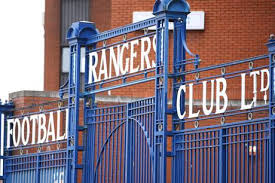By Paul Nicholson
November 9 – The polarisation of financial power around Scotland’s two big clubs, Celtic and Rangers, was emphasised again with Aberdeen reporting a record £13.4 million turnover, up £337,000 from last year.
Compare this to Rangers who last week reported a halving of their losses to £3.3 million for the year ended June 2016 on a £6 million increased turnover to £22.2 million – a year in which the club were in the second tier Scottish Championship.
Aberdeen and Rangers are second and third in the Scottish Premiership on equal points.
Unlike Rangers though, Aberdeen trades profitably with a wages to turnover ration of 51%. Aberdeen’s wage bill is £6.8 million and the club reported an operating profit of £448,000.
Like Rangers, Aberdeen has ambition to be bigger and better, and a key part of that is a move away from Pittodrie to a new stadium. However, this comes at a price which could challenge the club’s financial stability.
Chairman Stewart Milne said: “There are significant challenges ahead, not least in the raising of the funds that will be required to deliver the project, which would provide the club, the community trust and our youth academy with appropriate facilities and infrastructure to increase their portfolio of activities in the local area.
“The fact that we have continued to make progress, both on and off the field of play, without a permanent training base and with accommodation that is simply not fit for purpose in the 21st century is quite remarkable and demonstrates what great potential there is for this club if we were operating on a level playing field with the competition.”
Rangers’ challenge
Rangers have a similar but different financial challenge with auditor Greig McKnight warning at the club’s results announcement that: “In order to continue operations for the next 12 months, the group is dependent upon raising additional finance.”
Chairman Dave King said that: “Further funding may be required during the 2017-18 season.”
The key financial battle for Rangers is to find a way to regain control of club merchandising rights that are under the control of Sports Direct and aggressive club shareholder Mike Ashley.
Rangers reportedly receive just 4p in the pound from the deal with Sports Direct. As a result the club is heavily dependent on gate receipts and fan loyalty, something that deserted Ashley when he had control of the club.
Getting Ashley to relinquish control of his grip on the retail revenue in favour of the club will not be easy.
King said: “A vast amount of time and resources have been tied up in dealing with the Sports Direct debacle.
“It remains our hope and belief that a solution to the issues we have with Sports Direct can be found and that this club will once again have a significantly profitable retail arm.
“This is a priority and we are determined to achieve an outcome whereby Rangers is treated with the appropriate levels of respect and value that were absent when the original deals were entered into.”
At this stage King’s hopes sound more like wishful thinking. Ashley may not have the leverage he previously had when the club owed Sports Direct £5 million (repaid by Rangers from funds raised by the board)
The ultimate determining factor could be the Rangers’ fans. Their support for the club at the turnstiles has sustained it during the change of board and overthrow of the Ashley regime. Now their power over the club shop checkout could prove to be the deciding factor in forcing Ashley’s hand. Before then though the directors are likely to have to dig deep again to keep up momentum.
Contact the writer of this story at moc.l1743736610labto1743736610ofdlr1743736610owedi1743736610sni@n1743736610osloh1743736610cin.l1743736610uap1743736610
